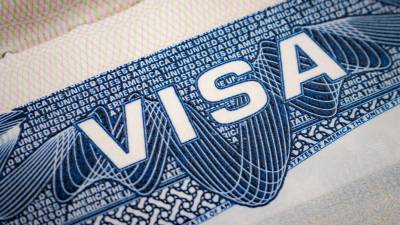Category: Waivers
-

IRCC Confirms Rules at the Border Surrounding DUIs
On December 18, 2018, Canada introduced much tougher penalties for individuals with convictions of DWI, DUI or DWAI. The new bill, titled the Impaired Driving Act, has made impaired driving a serious criminal offense in Canada, whereas it was previously only considered a criminal offense. To learn more about this, click here. However, since the […]Read More -

Government Shutdown’s Continued Impact on Immigration
The government shutdown that began in December 2018 has become the longest U.S. government shutdown in history and is having some major impacts on immigration processing. Customs and Border Protection officers are considered essential staff due to the important role they play in national security at the U.S. border and ports of entry. This ultimately […]Read More -

Client of the Month: JL
JL recently worked with Berardi Immigration Law to obtain a waiver to enter the United States. In 1998, JL was deported from the United States and faced a 20-year to lifetime ban from entering the U.S. Upon returning to Canada and working for a logistics company for over 10 years, he shifted his focus to […]Read More -

Legalization of Marijuana in Canada and Possible Repercussions for Cross-border Travel
Earlier this year, Canada passed legislation that would fully legalize the recreational use of marijuana on October 17, 2018. As our previous blog posts have mentioned, while marijuana has already been legalized in some U.S. states, it still remains an illegal substance federally. Consequently, as these state and federal (and now Canadian) laws collide, we […]Read More -

Marijuana at the Canada/US Border & the Criminal Waiver Process
In April 2017, the Canadian federal government introduced legislation with a goal of legalizing and regulating the use of recreational marijuana. If passed, the proposed Federal Cannabis Act would create rules for producing, possessing, and selling cannabis across Canada. Under the Act, provinces and territories will regulate distribution and retail of non-medical cannabis, minimum age, […]Read More -

Visa Validity and Waivers
A consular officer may recommend a waiver for most grounds of inadmissibility under INA § 212(a). Some grounds of inadmissibility, however, cannot be waived, including INA §§ 212(a)(3)(A)(i)(I), 212(a)(3)(A)(ii), 212(a)(3)(A)(iii), 212(a)(3)(C), 212(a)(3)(E)(i) and 212(a)(3)(E)(ii). Regardless, waivers are only available to applicants that otherwise qualify for the visa classification being sought, and, even then, there is […]Read More -

Waivers Under the Travel Ban
On September 24, 2017, President Trump issued travel ban 3.0, via Presidential Proclamation, which suspends the entry of certain nationals of eight designated countries — Chad, Iran, Libya, Syria, Yemen, North Korea, Venezuela and Somalia. However, these entry restrictions may be waived on a case-by-case basis. To qualify for a waiver, a consular officer or […]Read More -

Denied Entry Due to Prior Criminal Conviction? Nonimmigrant Waiver May be the Answer
It’s not unusual for our office to get a call from a frantic traveler — someone who has been to the U.S. countless times over the years — who is now faced with a Customs and Border Protection officer refusing admission to the U.S. based on a prior criminal conviction. As technology continues to evolve, CBP […]Read More -

Deportation/Removal from the United States
The Immigration and Nationality Act contains several provisions regarding the deportation of non-citizens. Non-citizens may be deported for a variety of reasons including criminal issues or illegal entry/employment issues. Long-time “green card holders” or lawful permanent residents of the U.S. are also subject to such provisions. Rosanna Berardi is a former Trial Attorney for the […]Read More -

Impact of a Criminal Conviction on Your Immigration Status
The U.S. government does not recognize foreign pardons when determining admissibility. This means that even if your past conviction was pardoned, you may still need a criminal waiver to enter the U.S. In this video, Attorney Rosanna Berardi discusses when a criminal waiver may be needed. Did you take a plea agreement without realizing you […]Read More

